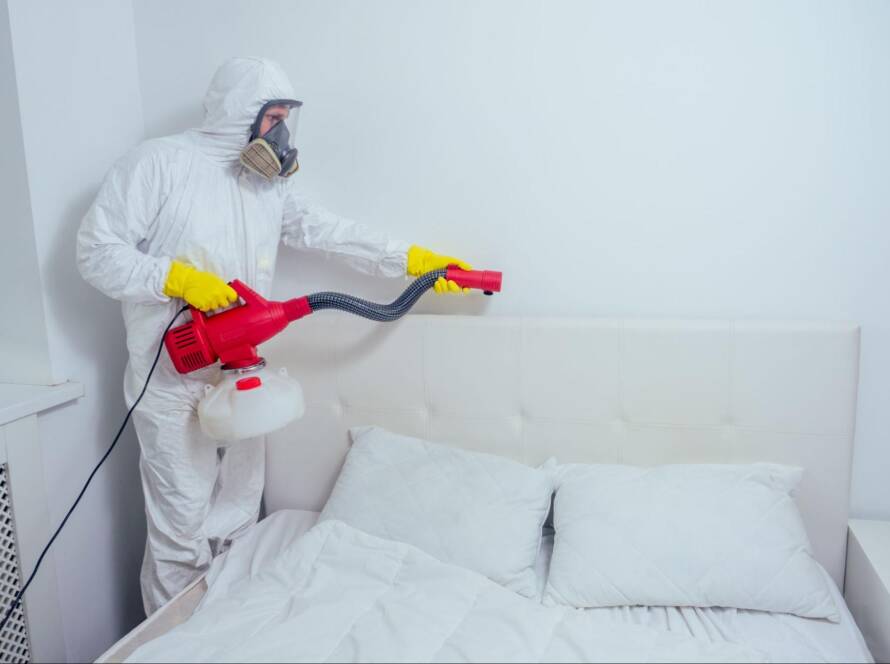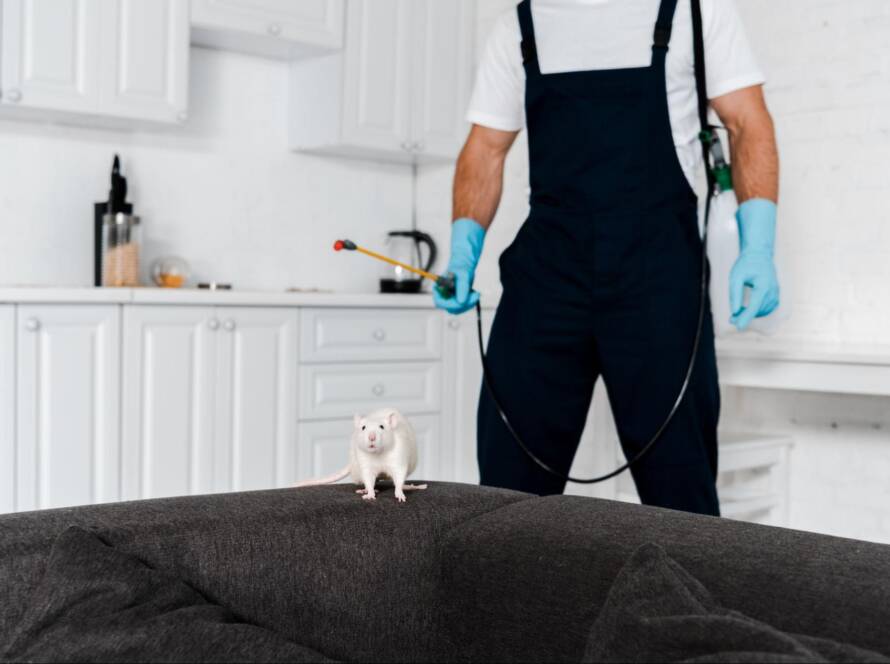Pests don’t just annoy; they infest, damage, and multiply fast. What starts as a few ants or a lone mouse can become a much larger infestation overnight. Spraying store-bought products may feel like action, but it rarely reaches the source. That’s where pest control companies come in—providing complete, customized solutions for homes and businesses.
What Pest Control Companies Actually Provide
Pest control companies provide structured, science-based services that go far beyond spraying. They start with detailed inspections, develop targeted treatment plans, and follow up to ensure pests are gone for good. These services are tailored to meet the needs of both residential and commercial pest control. Each step helps protect your property’s safety, structure, and long-term value.
Inspections Identify Entry Points and Risk Areas
A proper inspection isn’t just a quick scan of the kitchen or attic. Licensed technicians assess every part of your structure, including crawl spaces, basements, siding, and rooflines. They look for signs of activity, moisture issues, and structural weaknesses that pests exploit. That also includes examining dumpsters, vents, inventory areas, and loading zones for commercial spaces. The process may involve tools like thermal scanners, UV lights, and moisture meters. Without this step, treatments are just temporary patches.
Custom Treatment Plans for Every Property
There’s no universal spray that fixes every infestation. Pest control companies create site-specific strategies based on property size, pest type, building usage, and safety considerations. For example, a residential pest control plan will avoid harsh chemicals near kids and pets. Meanwhile, a commercial pest control service might include after-hours applications or regulatory compliance checks. Treatments are timed to break breeding cycles and are adjusted as conditions change. This approach ensures pests are eliminated at the root.
Products and Equipment Are Commercial-Grade Only
Pest control companies use EPA-approved chemicals that aren’t available in stores. These are more concentrated, more effective, and longer-lasting than anything you can buy off the shelf. The equipment, such as foggers, aerosol injectors, and baiting systems, penetrates deep into wall voids and hidden nesting areas. Technicians know how to use these tools safely without endangering people or pets. In contrast, DIY sprays often miss targets or push pests deeper into walls. The right tools make a permanent difference.
Follow-Up Visits and Monitoring Maintain Control
One visit isn’t enough to keep pests gone. Companies revisit your home or business to monitor traps, reassess hotspots, and track changes in pest behavior. Monitoring is especially critical for commercial sites with foot traffic or food handling. Follow-up also allows technicians to adjust the plan as seasons shift and pest pressure rises. This ongoing service is what separates accurate control from short-term relief. Without it, pests usually return stronger than before.
Why DIY Pest Control Usually Fails
DIY pest control may look easy, but it rarely solves the problem. Most treatments in stores address visible pests, not hidden nests or breeding areas. Without expert knowledge, homeowners and business owners often misidentify the pest or misuse products. The result is wasted money, persistent infestations, and growing frustration.
DIY Only Affects Surface-Level Pest Activity
DIY sprays and traps focus on pests you can see. They don’t reach eggs, larvae, or colonies hidden in walls, attics, or beneath foundations. You might kill ten ants today, but leave thousands alive and breeding. That makes infestations seem resolved, only to come back worse. Without addressing the root of the problem, it never truly ends. Professionals know how to find and eliminate the entire colony.

Misidentifying Pests Leads to Wrong Treatments
Not all pests are treated the same. Mistaking termites for ants or mice for rats leads to using the wrong product and method. Missteps like this allow infestations to spread unchecked. Residential customers may accidentally harm pets or beneficial insects. Commercial properties risk violating health codes or contaminating inventory. Correct identification is the foundation of effective control.
Why Store-Bought Pest Products Often Fail
Retail pest products are diluted to meet safety standards for the general public. That means they wear off quickly, leaving pests unharmed or slightly deterred. It gives infestations time to rebound and expand. Professional products are applied with precision to avoid overuse and reduce resistance. DIY chemicals can even drive pests deeper into hiding when used without knowledge. Long-term exposure to ineffective solutions worsens the issue.
Random Application Lacks Timing and Strategy
Most DIY efforts lack a treatment schedule, causing missed breeding windows. Spraying at the wrong time may kill only adults, leaving eggs to hatch later. Without sealing entry points or removing attractants, you’re just buying time. In commercial environments, this creates business interruptions and reputation risk. Pest control companies work with precise timing, rotation plans, and environmental adjustments. That coordination is what delivers lasting results.
Residential Pest Control Services That Really Work
Homeowners need more than traps and sprays; they require comprehensive home protection. Pest control companies protect families, property, and peace of mind by stopping infestations before they become a problem. Their work covers every corner of the house, from crawl spaces to roof eaves. This proactive defense keeps homes safer, cleaner, and easier to maintain.
Kids and Pets Need Safer Treatment Choices
Residential pest control services are built around family safety. Companies use selective baiting, barrier treatments, and eco-friendly options where needed. Technicians know how to avoid contamination of surfaces like countertops and play areas. Treatment zones are clearly marked, and indoor applications are often odorless. The safety protocols extend to waste disposal and air circulation. These safeguards aren’t available through over-the-counter sprays.
Common Pests Require Different Treatment Styles
Not all home invaders are treated equally. Ants need baiting, spiders require barrier sprays, and rodents demand physical exclusion. A one-size-fits-all spray misses most of these issues. Technicians mix and match treatments based on pest type, severity, and season. Over time, they adjust the strategy to stop repeat infestations. This level of detail is nearly impossible with DIY solutions.
Commercial Pest Control for Smooth Operations
Businesses can’t afford downtime from pest problems. Commercial pest control services are structured to protect operations, staff, customers, and reputations. Companies work discreetly and efficiently, reducing disruption while ensuring code compliance. Their programs are documented, scalable, and tailored to business needs, making them essential for any serious operation.

Strict Pest Protocols for Food and Retail Sites
Restaurants, grocery stores, and food warehouses have unique pest risks. Due to moisture and food exposure, these sites attract rodents, cockroaches, and flies. Pest control companies schedule treatments during closed hours to minimize exposure. They use tamper-proof bait stations, sanitize critical areas, and monitor compliance logs. One misstep can trigger violations or loss of business. That’s why companies trust licensed professionals to get it right.
Pest Control for Offices and Industrial Sites
Offices may not have food, but pests still invade for shelter and warmth. Meanwhile, factories and storage units attract nesting pests like mice and ants. Commercial pest control programs include entry-point sealing, perimeter barriers, and odor control. They also track seasonal trends and staff activity patterns that influence infestations. Reporting tools help meet landlord, franchise, or corporate compliance needs. This level of detail ensures business continuity.
The Long-Term Value of Hiring a Pest Control Company
Hiring a pest control company isn’t a cost but a safeguard. You’re protecting the structure, health, and usability of your property. Over time, professional pest management saves money, prevents emergencies, and reduces stress, whether residential or commercial. Ongoing service builds a protective wall against infestations.
Pest Control Prevents Costly Structural Repairs
Rodents chew through wires and insulation, while termites silently eat away at support beams. These damages can cost thousands to fix and often go unnoticed until it’s too late. Pest control services intercept the damage before it spreads. Technicians look for early warning signs that the average person would miss. With regular visits, minor problems don’t snowball into repair bills. That prevention adds up to real savings.
Your Property Stays Clean, Healthy, and Livable
Pest droppings, shed skins, and nesting materials create health hazards. Allergens from cockroaches or mites worsen asthma and respiratory conditions. Rodents contaminate food storage areas, including break rooms or kitchens. Ongoing pest control reduces exposure to these harmful contaminants. You get a cleaner space that feels safer to live or work in. That peace of mind is part of the value.
Why a Pest Control Company is Your Smartest Move
Pests spread fast, but solutions don’t have to wait. One call connects you to experts who solve the problem at its core. DIY may seem easy, but it rarely works when it matters most. Trust a pest control company that protects what you’ve built before the damage becomes permanent. Your home or business deserves more than trial and error—it deserves real results.
The Thrash Pest Control blog offers expert advice on everything from termite tactics to rodent red flags. Stay informed, stay protected.



